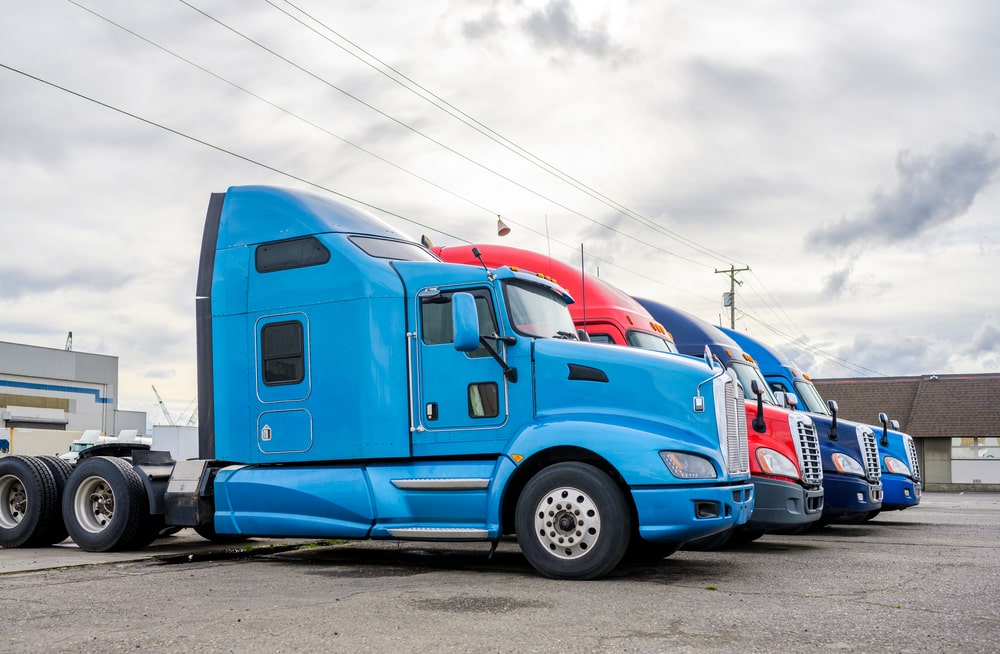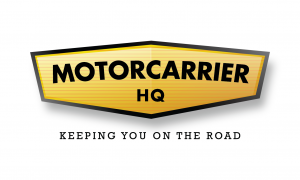January 27, 2022
How Do I Determine Whether I am Subject to FMCSA’s Safety Regulations?

With few exceptions, operating any sort of trucking or transportation business means you’ll likely be expected to adhere to a number of federal regulations. The Federal Motor Carrier Safety Administration (FMCSA) governs these regulations in an effort to enforce a base level of safety standards for the millions of trucks delivering goods across the country each day.
The majority of employers and employees involved in the commercial motor vehicle transport industry are subject to these extensive regulations, which include strict drug and alcohol testing. Unfortunately, for those new to the industry or looking to start their own transportation business, the meticulous details behind the FMCSA safety regulations can be a major barrier to entry.
Here’s what you should know about FMCSA regulations, how to know if they apply to you and the resources Motor Carrier HQ can provide to help you establish a successful, compliant trucking operation.
What Are The FMCSA Safety Regulations?
The FMCSA regulations are the rulebook by which the trucking industry operates — and we mean book in a literal sense. There are 39 sections of Federal Motor Carrier Safety Regulations and Interpretations, and writing them all here would require an impossible amount of copy-pasting (plus, it’s not exactly light reading).
However, you’ve likely encountered many of the industry’s standard rules and regulations already. The FMCSA is where you’ll find details outlining a driver’s hours of service, CDL driver qualifications and license requirements, guidelines for regular repairs and maintenance, the rules behind transporting hazardous materials, and all other applicable information in regards to the safe operation of a commercial vehicle.
Though these rules may initially seem prohibitive (both in terms of content and in the length of the document itself), the FMCSA’s extensive framework of regulations aims to keep drivers safe. For example:
- The constantly changing hours of service model was designed to prevent overworked drivers from pushing past their physical limits.
- Frequent drug and alcohol testing helps keep impaired drivers off the road.
- Additional regulations overseeing hazardous material transport helps keep dangerous substances from contaminating roadways and warehouses.
As restrictive as these thousand or so pages of legalese might appear, they serve a crucial role in keeping the entire transport business afloat.
When Do These Safety Regulations Apply?
There are a number of common scenarios in which both commercial and private transport will fall under the FMCSA’s influence. The Department of Transportation’s official site lists the following as subject to federal regulations:
- A vehicle with a gross vehicle weight rating or gross combination weight rating (whichever is greater) of 4,537 kg (10,001 lbs.) or more (GVWR, GCWR, GVW or GCW)
- A vehicle designed or used to transport between 9 and 15 passengers (including the driver) for compensation, whether direct or indirect
- A vehicle designed or used to transport 15 or more passengers including the driver and not used for compensation
- Any size vehicle used in the transportation of materials found to be hazardous for the purposes of the Hazardous Materials Transportation Act (49 U.S.C. 5101 et seq.) and which require the motor vehicle to be placarded under the Hazardous Materials Regulations (49 CFR Parts 100-177). This includes INTRASTATE Hazardous Materials carriers.
For drivers, operators, and employers meeting any one of these criteria, the standard FMCSA regulations immediately apply. That means anybody with a CDL driver qualification in their possession must agree to the requisite medical exams and controlled substance and alcohol testing. Also, trucks need all regulation-mandated parts and accessories necessary for safe operation, hours of service must be correctly observed and logged, and all inspection, repair, and maintenance must be found in compliance with federal safety standards.
Failing to comply with federal regulations can subject your business to hefty fines, a significant uptick in random roadside inspections, and other sanctions likely to slow everyday operations (and cost you money) until your business is fully compliant.
How Can Motor Carrier HQ Help?
Motor Carrier HQ was built to help new trucking companies and prospective owners acquire and maintain their own Operating Authority. Our mission is to streamline your business and help you get more out of life by avoiding hours spent needlessly sifting through 1,000+ pages of regulatory codes and stipulations.
Motor Carrier HQ boasts tons of useful resources to eliminate potential obstacles that prevent drivers from hitting the road: from sorting out the proper licensing and registrations needed to operate both intrastate and interstate jobs, to providing access to our drug and alcohol consortium to aid with the hassle of random drug testing. Rather than paying a fee and sorting through the logistics of taking and delivering a drug test every time one is required, our consortium program provides members access to more than 20,000 collection sites nationwide.
The consortium also covers a year’s worth of drug testing at a flat rate with no added fees. This flat rate covers tests needed for re-employment screening, post-accident testing, random tests, reasonable suspicion tests, return-to-duty tests, and follow-up tests.
Motor Carrier HQ Wants to Help You
While the FMCSA safety regulations are necessary to the industry’s success, they shouldn’t serve as an obstacle preventing access to a critical industry. The consistent need for reliable shipping and transport means tons of opportunities for commercial drivers and those looking to become owner-operators, and Motor Carrier HQ’s resources can help.
Don’t hesitate to contact us with questions about our drug and alcohol compliance program or other programs designed to get you up and moving.




